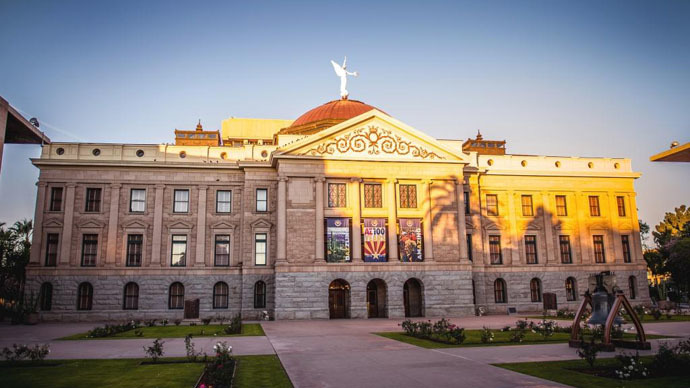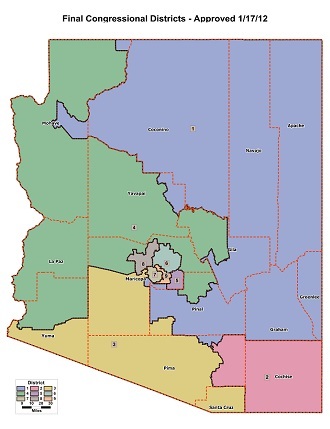Supreme Court strikes blow to Arizona GOP’s gerrymandering dreams

The US Supreme Court has ruled that an independent commission can redraw the lines of congressional districts in Arizona, in accordance with a referendum passed by the voters. The decision helps potential candidates in competitive districts.
The 5-4 Supreme Court decision in favor of the Arizona Independent Redistricting Commission hinged on the meaning of the word “legislature.” Republicans, who wished to continue controlling the decennial redistricting process, argued that the commission was unconstitutional because the clause in the Constitution regarding elections says, “The times, places and manner of holding elections for senators and representatives shall be prescribed in each state by the legislature thereof.”

The 2000 Arizona ballot initiative that created the commission ‒ which consists of two members chosen by Republican lawmakers, two by Democratic lawmakers and one chosen by the other four members ‒ in response to perceived gerrymandering blatantly in favor of the state’s Republicans.
The Supreme Court found that the commission was constitutional, noting: "Redistricting is a legislative function, to be performed in accordance with the State’s prescriptions for lawmaking, which may include the referendum, which may include the referendum and the Governor’s veto," Justice Ruth Bader Ginsburg wrote for the majority. “[W]e see no constitutional barrier to a State’s empowerment of its people by embracing that form of lawmaking.”
Republicans in the Arizona Legislature wanted to draw more GOP voters into the state’s three most competitive congressional districts, two of which are held by Democrats and one which flipped from Democrat to Republican in the 2014 midterm elections.
Thomas Mann and Norman Ornstein, political scientists and congressional scholars, explained why voters were looking for alternatives to that plan in a brief supporting the results of the referendum and the redistricting commission’s efforts.
“When the district-drawing process is controlled by elected officials, the result too often is a process dominated by self-interest and partisan manipulation,” they wrote. “The consequences are twofold: diminished electoral competition, which insulates representatives from their constituents; and an increasingly polarized Congress that takes cues from the most extreme and politically active partisans, with little incentive to compromise.”
Democratic state Rep. Bruce Wheeler is considering running for Arizona’s 2nd District congressional seat, currently held by newly elected GOP Rep. Martha McSally, having formed an exploratory committee in February. McSally beat then-Rep. Ron Barber (D-Arizona) by 167 votes in November 2014.
READ MORE: Supreme Court guts Civil Rights-era voting protection, siding with 'Old Confederacy'
Not knowing how the Supreme Court might rule in the case was a big part of his reasoning for not jumping into the race right away, as the legislature may have dramatically redrawn the district had the majority of justices not sided with the commission.
“The only obstacle I see is the Supreme Court decision,” Wheeler told Politico at the time. “If it looks hopeless for any Democrat, anyone would have to reevaluate.”
A Democratic campaign official in Washington, who requested anonymity from Politico, acknowledged the case has been affecting recruitment in Arizona.
“It hasn’t stopped us from talking to people,” the
official said, “but it’s obvious this is something people are
keeping in mind.”
The Supreme Court’s decision is not likely to affect many states,
as California is the only other one that has diminished the
legislature’s role in redistricting similar to that in Arizona,
but 11 other states have commissions that have some sort of say
about reapportionment.












